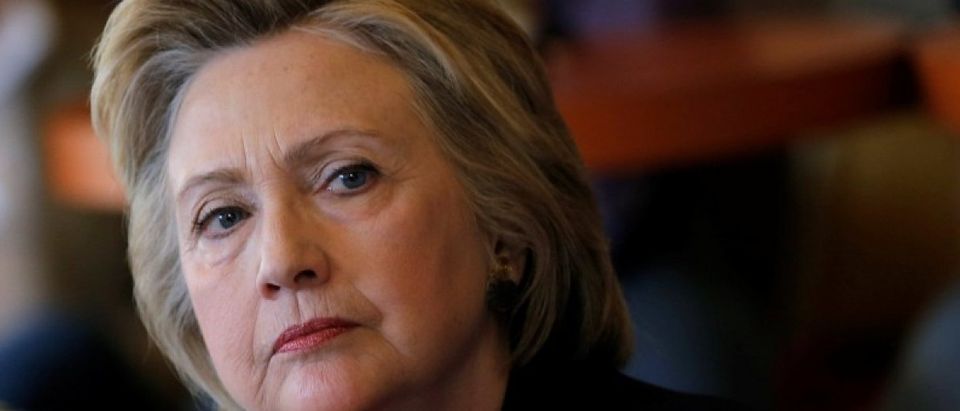A federal judge on Wednesday granted limited discovery to the watchdog group Judicial Watch in one of its lawsuits against the State Department and says that a deposition of former Secretary of State Hillary Clinton “may be necessary.”
U.S. District Court Judge Emmet Sullivan formally approved conditions that the State Department and Judicial Watch agreed to last month. The conservative group is suing the State Department for records related to a special job held by Clinton’s deputy chief of staff, Huma Abedin, while she worked at the State Department.
In his ruling, Sullivan noted that “discovery is an extraordinary procedure” in a Freedom of Information Act lawsuit. But he said that “discovery should be permitted…when a plaintiff raises a sufficient question as to the agency’s good faith in processing documents in response to a FOIA request.”
Judicial Watch has met that bar, Sullivan says.
“Judicial Watch raises significant questions in its Motion for Discovery about whether the State Department processed documents in good faith in response to Judicial Watch’s FOIA request,” Sullivan wrote, adding that “Judicial Watch is therefore entitled to limited discovery.”
The group’s Freedom of Information Act case was re-opened last year after it was discovered that Clinton used a personal email account and private server during her time in office. It contends that Clinton and/or the State Department used the off-the-books email system in order to thwart Freedom of Information Act requests.
As part of the discovery process, Judicial Watch will be allowed to depose several Clinton aides, including Abedin, Clinton’s chief of staff Cheryl Mills, and Bryan Pagliano, the information technology specialist who set up Clinton’s server.
Judicial Watch can also quiz several career State Department officials, including under secretary of management Patrick Kennedy, Stephen Mull, the former executive secretary of the State Department, and Lewis Lukens, the former executive director of the executive secretariat.
“Based on information learned during discovery, the deposition of Mrs. Clinton may be necessary,” Sullivan ruled. “If Plaintiff believes Mrs. Clinton’s testimony is required, it will request permission from the Court at the appropriate time.”
“In sum, the circumstances surrounding approval of Mrs. Clinton’s use of clintonemail.com for official government business, as well as the manner in which it was operated, are issues that need to be explored in discovery to enable the Court to resolve, as a matter of law, the adequacy of the State Department’s search of relevant records in response to Judicial Watch’s FOIA request,” the judge wrote.


